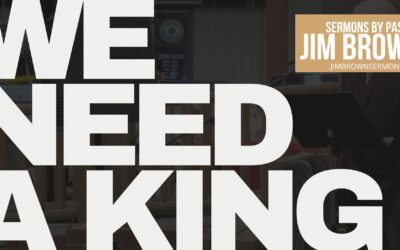APRIL 23, 2025
EP 20: BACK TO BASICS | The Life-Changing Call To Surrender To God
Return from Exile 2nd Temple
Some things just weren’t meant to run rough.
When life starts to shake and rattle, it’s often a sign we’ve drifted from the way we were designed to live. In this message on how to surrender to God, you’ll hear a relatable, real-world reminder of how peace, identity, and revival begin when we stop relying on ourselves and return fully to Him.
Sermon Study Resources
Sermon Notes
Your Subtitle Goes Here
Sermon Notes
Back to Basics | The Life-Changing Call to Surrender to God
Main Scripture: Return from Exile | 2nd Temple Period
Created to Run Smoothly
Just as a finely-tuned engine is built to run smoothly, believers are designed to function best in relationship with God. When life feels rough, it’s often because something is out of alignment with His design.
📖 2 Samuel 22:31 (NLT)
“As for God, his way is perfect. All the Lord’s promises prove true. He is a shield for all who look to him for protection.”
Life begins to flow with peace and clarity when there is surrender to God and trust in His perfect way.
Living Out God’s Promises
Believing in God’s promises is more than knowing them—it’s living by them. Real security is not found in finances, careers, or comfort but in God alone.
📖 Proverbs 16:25 (NLT)
“There is a path before each person that seems right, but it ends in death.”
The temptation is to rely on human understanding, but true transformation happens when we submit to God’s plan, even when it doesn’t make sense.
An Old Testament Overview: Return from Exile
The message of the prophets of the Old Testament during the return from exile was clear: it was time to get back to God’s Word. Ezra, Nehemiah, Esther, Haggai, Zechariah, Malachi, and the book of Chronicles all reflect this unified call.
📖 Haggai 1:2 (NLT)
“The people are saying, ‘The time has not yet come to rebuild the house of the Lord.’”
📖 Haggai 1:4–6 (NLT)
“Why are you living in luxurious houses while my house lies in ruins? … Your wages disappear as though you were putting them in pockets filled with holes!”
When the people delayed rebuilding the temple, their lives became marked by frustration and lack. The same is true today—when worship is no longer a priority, blessings are replaced by struggle.
The Temple Was a Picture of Relationship
The temple wasn’t about a building—it represented worship, repentance, and the presence of God. It illustrated humanity’s need for a sacrifice to atone for sin and God’s desire to dwell among His people.
📖 Matthew 16:26 (NLT)
“And what do you benefit if you gain the whole world but lose your own soul?”
The Temple Today: A People, Not a Place
Believers now serve as the temple of God. Together, the Church becomes the dwelling place of the Holy Spirit.
📖 1 Corinthians 3:16 (NLT)
“Don’t you realize that all of you together are the temple of God and that the Spirit of God lives in you?”
📖 Ephesians 2:19–21 (NLT)
“We are his house, built on the foundation of the apostles and the prophets. And the cornerstone is Christ Jesus himself.”
This truth shapes Christian identity—as the people of God, the Church carries His presence into the world.
Church Revival Begins with Surrender
The revival under King Hezekiah in 2 Chronicles 29 offers a model for spiritual renewal. Revival began when the people:
-
Set apart the priests
-
Cleansed the temple
-
Offered sacrifices
📖 Romans 12:1 (NIV)
“Offer your bodies as living sacrifices, holy and pleasing to God—this is your spiritual act of worship.”
Just as Hezekiah led the people to renew the temple, the Church is called today to return to the basics: surrender to God, repentance, and wholehearted worship.
Don’t Focus on Sin—Focus on God
Spiritual growth doesn’t come from obsessing over failure, but from keeping eyes fixed on Christ. Transformation happens not by striving to be better, but by drawing near to Jesus.
📖 Romans 6:11–13 (NLT)
“Consider yourselves to be dead to the power of sin and alive to God through Christ Jesus… Do not let any part of your body become an instrument of evil to serve sin.”
Don’t try to clean up first—surrender to God, and He will do the cleansing.
Living Out a New Identity
Believers are no longer their own. Those who trust in Jesus have been bought with a price and are called to live as His representatives.
“We don’t want to just become nicer versions of the old me. What we want to do is become representatives of Jesus Christ.”
📖 Philippians 1:6 (NLT)
“I am certain that God, who began the good work within you, will continue his work until it is finally finished…”
Application: The Life-Changing Call to Surrender to God
-
Return to worship as your highest priority
-
Stop trying to fix yourself—focus on Christ
-
Let personal revival begin with a cleansed and surrendered heart
-
Embrace your role in the Church as a living temple of God
-
Trust in God’s promises and walk by faith, not sight
This message calls the Church to stop running on its own strength and surrender to God fully. When the people of God seek Him with all their hearts, the temple is restored, and revival begins.
📌 Reflect & Respond
-
What areas of life have been running “rough”?
-
Are you prioritizing your relationship with God—or just getting by?
-
Are you living as part of the body, fully surrendered to Christ?
Topics: Surrender to God, Old Testament overview, Prophets of the Old Testament, Christian Identity, Church Revival
Bible Verses
Your Subtitle Goes Here
Bible Verses
2 Samuel 22:31 (NLT)
As for God, his way is perfect. All the Lord’s promises prove true. He is a shield for all who look to him for protection.
Proverbs 16:25 (NLT)
There is a path before each person that seems right, but it ends in death.
Haggai 1:2 (NLT)
“This is what the Lord of Heaven’s Armies says: The people are saying, ‘The time has not yet come to rebuild the house of the Lord.’”
Haggai 1:4–6 (NLT)
“Why are you living in luxurious houses while my house lies in ruins? This is what the Lord of Heaven’s Armies says: Look at what’s happening to you! You have planted much but harvest little. You eat but are not satisfied. You drink but are still thirsty. You put on clothes but cannot keep warm. Your wages disappear as though you were putting them in pockets filled with holes!”
Matthew 16:26 (NLT)
And what do you benefit if you gain the whole world but lose your own soul? Is anything worth more than your soul?
1 Corinthians 3:16 (NLT)
Don’t you realize that all of you together are the temple of God and that the Spirit of God lives in you?
Ephesians 2:19–21 (NLT)
You are members of God’s family. Together, we are his house, built on the foundation of the apostles and the prophets. And the cornerstone is Christ Jesus himself. We are carefully joined together in him, becoming a holy temple for the Lord.
Romans 12:1 (NIV)
Therefore, I urge you, brothers, in view of God’s mercy, to offer your bodies as living sacrifices, holy and pleasing to God—this is your spiritual act of worship.
Romans 6:11–13 (NLT)
So you also should consider yourselves to be dead to the power of sin and alive to God through Christ Jesus. Do not let sin control the way you live; do not give in to sinful desires. Do not let any part of your body become an instrument of evil to serve sin. Instead, give yourselves completely to God…
Philippians 1:6 (NLT)
And I am certain that God, who began the good work within you, will continue his work until it is finally finished on the day when Christ Jesus returns.
Sermon Slides
Your Subtitle Goes Here





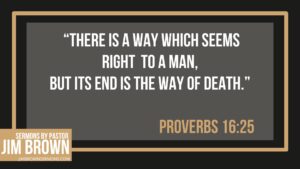
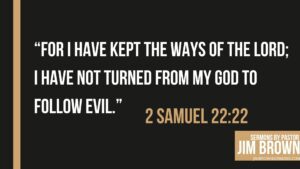
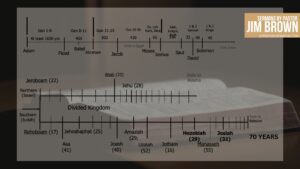
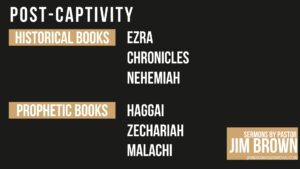
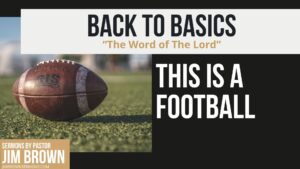
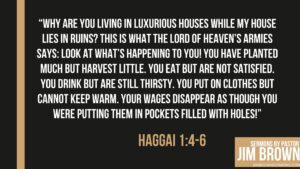
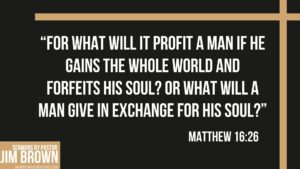
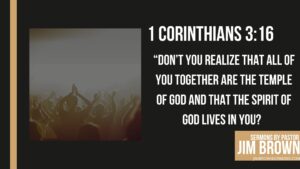
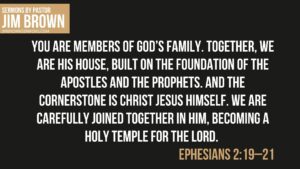
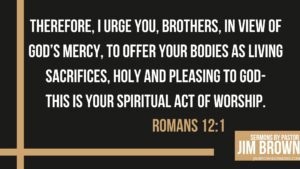

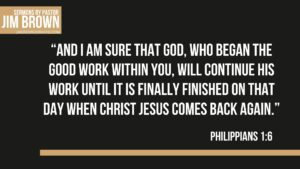
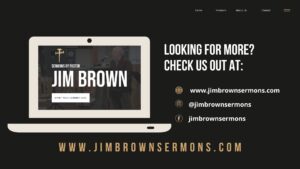
Related Song List
Your Subtitle Goes Here
Recommended Resources
Your Subtitle Goes Here
Recommended Books
- The Pursuit of God by A.W. Tozer
A classic that explores the deep desire for a closer relationship with God and the necessity of surrender in that pursuit. - Experiencing God by Henry Blackaby
This study guides readers to recognize God’s work around them and encourages complete surrender to His will. - The Practice of the Presence of God by Brother Lawrence
A timeless work emphasizing continual communion with God through everyday tasks and surrender. - Reclaiming Surrendered Ground by Jim Logan
Addresses spiritual warfare and the importance of surrendering every area of life to Christ. - Mere Christianity by C.S. Lewis
Lewis discusses the essence of Christian belief, including the necessity of surrendering to God.
Articles & Devotionals
- “Am I Completely Surrendered to Christ?” by John Piper
An insightful discussion on evaluating one’s level of surrender to Jesus. - “Surrender to God” by John Eldredge
A reflection on the challenges and beauty of surrendering to God’s will. - “Stop and Surrender” by Charles Swindoll
Encourages believers to cease striving and fully trust in God’s plan. - “Surrender or Commitment?” by Henry Blackaby
Explores the difference between making commitments and truly surrendering to God. - “Reflections: Surrender” by C.S. Lewis Institute
Discusses the daily journey of surrendering to God’s will.
Videos & Sermons
- “Living a Surrendered Life” by Dr. Charles Stanley
A sermon on the importance and impact of surrendering to God. - “Surrender (Acts 17:16-34)” by Pastor Joby Martin
A message focusing on Paul’s call to surrender to God’s plan. - “Cross, Complain, Anger, & Surrender” by Dallas Willard
Discusses the challenges of surrendering amidst life’s difficulties. - “No Compromise, No Surrender” by R.C. Sproul
Emphasizes the necessity of unwavering surrender to Christ. - “Surrendering Our Common Life” by Max Lucado
Encourages believers to surrender daily routines to God’s purpose.
Some of these above links in this post maybe affiliate links, and we may earn a small commission at no additional cost to you. These are resources that we would recommend regardless of whether we earn a commission or not. The income generated helps cover website maintenance costs, allowing us to continue sharing sermons, resources, and content with you. We appreciate your support!
Sermon Transcript
Your Subtitle Goes Here
Transcript: Back To Basics | The Life-Changing Call To Surrender To God
I told Don I’d be talking about Harley’s today. When we lived in Chicago, it seemed like you just couldn’t get away. We lived probably 12 miles from the city limits, and it seemed like the city limits went beyond our place for another 30 or 40 miles. It was just a huge metropolitan area that just never ends. And so it was concrete, concrete, concrete everywhere. And every once in a while you’d find a little area they called a forest preserve and there was a tree there. And so one thing Raylynn and I did to kind of give ourselves a sense of vacation on the weekends, we got into motorcycling. We thought, okay, you just jump on the bike and go after you get on all the gear.
But we did. And we went away for weekends and it was great. It was like many vacations. It was an opportunity to relax. And I had had several motorcycles. We usually bought ’em in crates, all taken apart that somebody started as a project and I take it on, put it back together, and we upgraded that way. And then finally we bought a motorcycle that was all in one piece and it ran good. Better than anything else I’ve ever had. And it was a Honda. Now, the reason we didn’t get a Harley is because I couldn’t afford one, but it was a low rider, it was comfortable and it had a good size engine and it could get us way out of town quite easily. And one thing that I really appreciated about this motorcycle is it was a newer engine model. It was water cooled and it ran smooth, really smooth.
I mean really smooth. You couldn’t even tell this thing was running. It was so smooth. And so we really got to appreciate that smoothness. And about the time we were starting to get ready to move out here, we weren’t riding as much and it was kind of packed away. And I was over at somebody else’s house and a guy came up with a model just like we had only about 10 years newer. It was a Honda Magna and it was a nice bike, real nice. And he said, you want to try it? And I said, sure. Well, I got on, started it up and right away it didn’t feel right to me. What’s wrong with this? Why is it running so rough? And I said, this doesn’t run like my Magna runs. It runs rough. He goes, oh yeah. Well, what they did with this, they took the original design and they went to the engineering department. The marketing department went to engineering and said, this runs too smooth. It doesn’t feel like a Harley.
You got to detune this thing. And could you imagine these Japanese engineers looking at the plants? What you want me to, what you want me to detune the beautiful engine? But it was designed to run a certain way, really smooth. And here they go and they de-tuned it so that it would run rougher and people would get this feel of it being a rough riding. And God designed us to live in a certain way too, but seems like somewhere along the line we get detuned, isn’t it? And things run pretty rough along the way and we wonder what’s going wrong. And we don’t go back to that original plan and looking at how is it we were designed to operate in relationship with God? God says we’re supposed to live a certain way with him, close in relationship, seeking Him out. In two Samuel 2231, it says, as for God, his way is perfect. Do you believe that? Yes, as for God, his way is perfect.
All the Lord’s promises prove true. Now, this is great verse to memorize, but do you believe it? Are all God’s promises true? And will they prove themselves out? And do you believe that he’s a shield for all who look to him for protection? Question is, do you do it? Are you operating according to his plan? Do you believe his ways are perfect and follow him? Do you claim his promises and live by them? Do you look to him for protection or do you look to your bank accounts and your jobs and your homes and all these other things to somehow provide a sense of security? See, as believers, we’re tempted to live another way all the time. And that way is in our own strength and in our own resources. It’s kind of a fatal flu of humanity that makes us think that we know what’s best for ourselves, that I know this is what God’s word says, but my case is different. My situation’s a little bit different, and I can’t quite do things the way God designed it. And then things run rough and we wonder why we don’t believe that we really need help from God or from others. But in Proverbs 1625, it says, there is a way which seems right to a man, but its end is the way of death.
Do you ever find yourself asking, God, I thought you said you loved me. Isn’t that an act of faith just to believe he loves you? That’s what it’s all about. It’s a step of faith. Every aspect of our relationship with God is by faith, which is believing. Believe it. It’s true. His ways are better than ours ways and we’ll never understand fully his ways. We can only fulfill our purpose here on life as we learn God’s ways, as we seek them out and live according by faith to his ways. We can live in a manner that’s really inconsistent with God’s ways, can’t we? And then wonder why. Why is my engine running so rough? In two Samuel 22? It says, for I have kept the ways of the Lord, I have not turned from my God to follow evil. Don’t you wish you could say that every day, every moment.
Isn’t the Christian life just a matter of being able to say that maybe a little bit more and a little bit more every day that today, this moment I was able to trust God, I was able to follow his ways and my engines running smoother. Well, as we look at the last group of prophets in the history of Israel, as we’re working our way through the Old Testament here, we’re down to the last few that we haven’t talked about yet. Those are Ezra, Nehemiah, Esther, Haggai, Zacharia, Malachi and the Chronicles is in there. There are a lot of overlap in these books, but it’s a lot of the same old story asking God, why can’t I have it? In many ways, these guys were all considered contemporaries. They all worked together during a same time period. If you look at the timeline, I’ll go back to this just briefly, that the books in the Bible are not the order.
They appeared chronologically. They’re grouped more by subject, whether they’re history, poetry, prophetic, things like that. But what we’ve been doing is looking at ’em more chronologically and as we look at the timeline right there is where we’re at, the 70 years of exile, we’ve been through everything and the group of prophets we’re looking at is during this 70 years and both Israel and Judah were taken into captivity. And now the returning and what’s happened here is, well, let me go back a little bit, is that during the 70 years of captivity, a lot of things were going on in terms of where they were at in Assyria and Babylon and so on, that people started actually settling in. They weren’t all slaves. A lot of them became a part of the society there. And so they actually were just blending right in to those who had taken ’em out of their homeland.
And then Esther, the book of Esther is an account that of people who never did come back after the captivity that they had settled in so well that they didn’t even want to go back to Jerusalem. So first and second Chronicles, which are found right after Kings, much before anything else in the Bible that we’re talking about is actually about this period also. So chronologically, we’re trying to put this together and Chronicles is primarily a rerun. That’s what it is. It just tells everything that’s happened so far. It takes you a lot of genealogy in there. It’s just fun reading I’m telling you. But a lot of genealogy in there takes you on right up to through the kings again. But it seems to focus on a lot of the positives. It doesn’t bring out a lot of the dirty laundry that took place like in kings and so on.
It’s looking at more of the positive probably because the people have had enough of the negative already. They’ve seen a lot of that. They know all about it. And what Chronicles tries to do is point out how God was working with the people in a positive manner and that when they lived by faith and they did follow God, how things went well for them. It’s all written during this what we call post captivity time. So you have Second Chronicles is found right after Kings, but it’s actually about this time. So then you have Ezra, Nehemiah, and Esther along with Chronicles that’s all considered history books. They’re there to tell us more historically what was going on during that time of captivity and what the events were of them coming out of captivity back to Jerusalem while Haggai, Zachariah, Malachi, those are post captivity prophetic books.
Those are the ones that were calling people to repentance, telling of God’s love and faithfulness and reminding the people that God loves them and has a good plan for them. So taking all that in, what were they saying? Let’s get back to basics. Let’s move back into the land. Let’s go start all over again. But this wasn’t quite the same as it was before. This was, let’s get back to God’s word being in Chicago. Do you, I grew up outside of Chicago there and there was a saying, this is a football, are any of you familiar with that? Vince Lombardi, I believe it was with the Green Bay Packers when he went to turn them around as back in the sixties, he says, we got to get back to basics. And he looked at his team and said, gentlemen, this is a football. Let’s get back to basics. That’s what the prophets were saying. The prophets were saying God’s word. It’s the word of the Lord.
That’s it. We need to get back to that. Get away from all the trappings, all the religion, everything else. Let’s get back to the word of God. It doesn’t get any more basic than that and it still is where we need to go. It’s still what we have to be focusing on. So in many respects, they were starting all over. However, this move back to the promised land wasn’t as dramatic as some of their other moves was. I mean there was no parting of the Red Sea. There was no God’s provision of manna for them and all that. As they moved back now, they just kind of trickled back in. And really during this Babylon captivity, the Jews didn’t really repent. What happened was there was a King Cyrus of Persia that allowed them to move back in because he was a religious man and he just didn’t want any.
Gods mad at him out there, none. So he said, okay, Jews, you can go back if you want and worship the way you want. I don’t want your God mad at me and I don’t want anybody else’s God mad at me. So go ahead. So basically the people that didn’t restart their lives or anything like that kind of trickled back. A lot of them were Levites and priests who thought they could get back and get religion going again. And they were more of the humbler and poorer class and the rebuilding of the temple should have been their priority being especially the Levites and priests. But they moved back and they started getting on with life and they were easily distracted from the temple and they never really got back to it. And that’s where the prophets started saying, come on guys, come on. And the historians in Nehemiah their stories.
Let’s rebuild things here. Let’s get it going. And then in Haggai one, two, it reports the people are saying, the time has not yet come to rebuild the house of the Lord. The people just determined that, no, it’s not time yet. And then Haggai and one four says, nah, no, it’s time. Listen to what he says. Why are you living in luxurious houses while my house lies and ruins? This is what the Lord says. Consider how things are going for you. Okay? Listen to this. Consider how things are going for you. You have planted much, but you’ve harvested little. You have food to eat, but it doesn’t fill your stomachs. You have wine to drink, but it doesn’t satisfy your thirst. You have clothing to wear, but it doesn’t keep you warm and your wages disappear like you have holes in your pocket. Does that sound familiar?
It sounds like a treadmill. It sounds like you just keep on trying and trying and trying and trying, but you’re just not getting anywhere. And he’s saying, no, get back to worshiping me and I take care of those things. You don’t have to. So was the temple really that important? I mean, couldn’t God bless them Anyway, haggi saying, check it out. What have you accomplished on your own? You’ve always come up short doing things your way. God’s been trying to tell you something. Listen up. The same God who provided manna for people in the desert is blowing your crops away. The temple meant worship. The temple meant recognition of their sins and the need for a sacrifice. The temple meant connection with God. It wasn’t just the fact that it was there, it’s what it illustrated to them. In the New Testament language in Matthew 16, it says, for what will a prophet a man if he gained the whole world and forfeits his soul?
Or what will a man give in exchange for his soul? You see, we don’t have to try to get everything right in this life. God will take care of that. Keep pursuing him. He’s given us principles, he’s given us promises, and he’s given us his Holy Spirit and we can continue to live by his grace, allowing him to provide for our need. God wasn’t asking them to build the temple because he needed a place to live. It served as a visual aid, something to remind them of their need for forgiveness. And that God has granted forgiveness. So is God’s grace and mercy towards them that he wanted to continually keep before them just as he had tried for thousands of years before that. So in the temple, the people would bring a sacrifice, an animal sacrifice. And that was to be an outward sign that they had an inner trust in God and that they believed that sin had to be atoned for by death.
And that’s the way it started out in the garden, that when Adam and Eve’s sinned, God says, you will die. Some death is going to take place as a result of sin. And now in order to experience forgiveness, a death had to take place. And they brought a sacrifice. And what was interesting is these sacrifices were oftentimes supposed to be brought into the house’s, pets originally. So they were to take a young lamb, bring it into the house as a pet for a year and then sacrifice it. And this wasn’t to teach the kids how bad God is and make them do this. This was to help them see how serious their sin is that caused this animal to have to die for their sins and provide a way that there’s no way they can measure up. And it’s a serious thing to God. You see?
So therefore, that’s what the temple meant. It meant seeing the distance there is between God and man, but how God is now in his temple dwelling among them, wanting them to be in relationship. And even though that sin of theirs keeps them away from God, he’s saying through sacrifice, you can come back. You can come close by pursuing other priorities, by not making the temple a priority. They were basically saying, oh, the temple God, living here among us, forgiveness of sins, who cares? I don’t care. Let’s just live for today. Let’s plan for tomorrow and let move on. So is there a New Testament equivalent for the temple? I think there is one Corinthians three 16. It says, don’t you realize that all of you now, this is the new living translation. All of you together are the temple of God and the spirit of God lives in you.
Now, if you look in your Bible, it may say that you are the temple of the Holy Spirit. And a lot of people say, that’s me. I’m the temple of the Holy Spirit. But this comes back from really the southern roots where it’s you all. Okay? Y’all are the temple of the Holy Spirit. All of you together, all y’all, pardon? All y’all, all y’all. Okay? All y’all are the temple of the Holy Spirit. Everybody together here is the temple of the Holy Spirit. Do you believe that God dwells among us, among his people? Here we are. It’s even just as clear or more clearly in Ephesians two 19, starting with the second part of the verse. It says, you are members of God’s family. We are his house built on the foundation of the apostles and the prophets and the cornerstone of this building, this house is Jesus himself.
And we who believe are fully joined together, becoming a holy temple for the Lord. So we are the holy temple and becoming the holy temple as we join together. Second Chronicles 29 tells about a revival that took place under Hezekiah. Again, one of the good stories that took place during the time of kings, and it’s got a kind of a model for us there for the church in terms of repentance and a foretaste of what the gospel was like for the people there. And what Hezekiah said is he said, first set apart the priests and clean out the temple. That’s where we’re going to start for revival. And as New Testament believers, the Bible says that we are priests. We are the body of Christ together, the priests, there’s nobody anymore that needs to come between us and God, we can directly go to Jesus Christ.
So a priest used to bring people sort of as a mediator, and now the mediator is Jesus Christ, and we can go directly to him. So we are the priests. Then Hezekiah ordered the sin offering to take place. The sin offering was a blood sacrifice. Only after the blood was drained and sacrificed, the carcass was brought outside and disposed of outside the city wall. And Jesus is our sin offering. His blood was shed for us so that we no longer are separated from God. That sacrifice for our sin has taken place once and for all. On the cross, his blood was shed and his body was taken out of the city and put into a tomb outside the city. Then Hezekiah offered a burnt offering which sacrificed the whole animal together. When Hezekiah ordered the burnt offering, it says the music and the temple began.
And in the New Testament, it relates us each individually as an offering to God, offering our whole body, our whole self, our whole being to God. We are the burnt offering in the New Testament. We give ourselves fully to God. And in doing that, the temple all comes together as each one of us doesn’t look out for ourselves, not really looking out for each other, we’re looking to dedicate ourselves to God, fully holy, our mind, our will, our emotions, our body, every aspect of our being. It says in Romans 12, therefore, I urge you brothers, in view of the mercies of God, to offer your bodies as living sacrifices holy and pleasing to God that this is your spiritual act of worship. See, it’s not enough just to know that our sins are forgiven and go on and say, okay, my sins are forgiven. Everything’s taken care of. I can do what I want do. Now, if your sins are forgiven, you continue to live as a member of Christ’s body, understanding that you are no longer your own, that you belong to God.
As believers, we are to consider ourselves, be alive in Christ. We are alive in Him, and we are dead to sin. Therefore, don’t let sin reign in your mortal bodies that you may obey Its evil desires. Don’t offer the parts of your body to sin as instruments of unrighteousness or wickedness. See, our responsibility is to continually look to God and offer ourselves to him. Don’t look at the sin, don’t focus on what you’re doing wrong or what you’re not doing right. Focus on God and wanting to give yourself to him and he will continually cleanse his temple. He will continually draw you near. So personal revival and victory come with a cleansed temple, but the temple is only going to get cleansed when it’s dedicated to God and given to him holy. And we are dedicated to rebuilding it and pulling it together in Christ.
Our sins are forgiven, but the music won’t begin until we fully repent. So the processes complete. When we submit to God, resist the devil and say, God, I’m all yours like the Jews. We have the responsibility to be rebuilding the temple. And to the degree that you’re oriented toward God and his will and you stay looking to that degree, you will be breaking free from the bondage of sinful behavior. You don’t need to focus on the sinful behavior, focus on God and you will grow and the sinful behavior will begin to diminish more and more. Don’t try to get rid of it. You can’t. God can do that. He can cleanse you. You cleanse by the blood of Christ every day. Life can then become a natural expression of God’s character in teaching, cleansing the temple focuses on Jesus and what he’s done. That sacrifice, that sacrifice that we should be growing so close to just like that lamb that was taken into the house as a pet to grow close to, in order to see how serious our sin is.
Now we have Jesus to draw close, to see that sacrifice and how he has drawn us close to God so we don’t have to focus on the external behavior that just becomes legalism. We don’t want to just become nicer versions of the old me. What we want to do is become representatives of Jesus Christ. So your aim is not to act different as a Christian. It’s not an act. It’s to be different. Knowing you’re forgiven only through the blood of Jesus, and that’s what you can come to him through. Anytime, anywhere. There’s nothing on your part that you can add to your salvation. Do you believe God is good? Do you believe he only has good things for you? If you believe that, then Jesus came for your good to bring you to him and be with you forever. Philippians one, six says, I am sure that God who began a good work in you will continue his work until it’s finally finished on that day when Jesus comes back again.
Heavenly Father, we thank you that our hope does not rest in what we see in this world. Whether it’s the good times or the hard times, whether it’s when things are running rough or running smooth, it’s not our hope. Our hope is in that you are coming again for your own. And Lord, each one of us would really like to be a part of that. And we know we are as we trust you for the forgiveness of our sins, believe that you are good and that as we go through this life, Lord, it is your great goal to make us more like Christ so that others can see your love and your great salvation. So we thank you for your word. We thank you for Jesus Christ. We thank you for the church, Lord, and we pray that we will be those examples of the temple where others can come and find freedom in Jesus. Amen.
Original Sermon Date: January 15, 2006
© 2025 Sermons by Pastor Jim Brown www.jimbrownsermons.com All rights reserved.

Back To Basics | The Life-Changing Call To Surrender To God
Return from Exile 2nd Temple
When Things Start Running Rough
There are moments in life when things just don’t run right. Maybe you’re working hard, doing your best, trying to hold everything together—but under the surface, it feels like you’re rattling apart. That’s a sign. Just like a powerful engine that was designed to run smoothly, your soul wasn’t meant to live in constant friction. God designed life to run in alignment with Him. And when we drift from that original design, it shows.
We were created to live close to Him. But instead of staying in sync, we try to fix it ourselves. We adjust, patch, and hustle—and still wonder why life feels off. The answer isn’t in tuning ourselves harder. It’s in the life-changing call to surrender to God.
God’s Way Is Perfect
The Bible puts it plainly:
“As for God, his way is perfect. All the Lord’s promises prove true. He is a shield for all who look to him for protection.”
2 Samuel 22:31 (NLT)
It’s not just a verse to memorize—it’s a truth to live by. Are we really looking to Him for protection? Or are we leaning on our own strength, our careers, our homes, or even our routines to provide a false sense of security?

Old Testament Overview: When the People Drifted
If there’s one thing the Old Testament shows us clearly, it’s how easy it is for people to drift from God’s plan. The prophets of the Old Testament often stepped into messy situations, calling God’s people to return—to rebuild what was broken and to start over the right way.
During the return from exile, we see a powerful picture of this. The people had settled into life away from God. Many didn’t even want to return to Jerusalem. They had blended in, lost their identity, and accepted a detuned version of life. But the message of prophets like Haggai, Zechariah, and Malachi was clear: get back to God. Get back to basics.
Prioritizing God Again
In Haggai, the Lord speaks to the people who had returned but neglected to rebuild His temple:
“Why are you living in luxurious houses while my house lies in ruins?… Look at what’s happening to you! You have planted much but harvest little. You eat but are not satisfied… Your wages disappear as though you were putting them in pockets filled with holes!”
Haggai 1:4–6 (NLT)
When we neglect worship, things don’t work right. When our lives are centered around our comfort instead of our Creator, the result is spiritual frustration. Sound familiar?
God wasn’t asking for a temple because He needed a building. The temple represented relationship—worship, sacrifice, forgiveness. It was a visual reminder of our need for God’s grace and mercy. The people weren’t just ignoring construction—they were ignoring God.
Surrender to God, Not Success
The call isn’t to chase a smoother life. The call is to surrender to God—to stop running on self-effort and start relying on God’s promises, His protection, and His presence.
Jesus echoed this truth:
“And what do you benefit if you gain the whole world but lose your own soul?”
Matthew 16:26 (NLT)
We weren’t created to achieve our way to peace. We were created to trust God and walk with Him daily. That’s the very heart of Christian identity—not a self-improvement project, but a surrendered life.
The Temple Now: Us
The Old Testament temple was a place. Today, it’s a people. Believers together make up the temple of God, built on the foundation of Christ.
“Don’t you realize that all of you together are the temple of God and that the Spirit of God lives in you?”
1 Corinthians 3:16 (NLT)
“We are his house… built on the foundation of the apostles and the prophets. And the cornerstone is Christ Jesus himself.”
Ephesians 2:19–21 (NLT)
The message hasn’t changed. Church revival doesn’t begin in buildings—it begins in hearts. When we come together, fully surrendered, the presence of God dwells among us in power.
Cleansing the Temple: A Picture of Repentance
In 2 Chronicles 29, a revival began under Hezekiah when they cleansed the temple and offered sacrifices. It was a reset. Today, that same cleansing happens not with animal sacrifices, but with the blood of Jesus.
“Offer your bodies as living sacrifices, holy and pleasing to God—this is your spiritual act of worship.”
Romans 12:1 (NIV)
Personal revival begins with repentance. Acknowledging sin. Returning to the altar. Recommitting everything. It’s not about trying harder—it’s about handing it all over.
Submit to God, Not Sin
Trying to conquer sin on your own will only exhaust you. Victory doesn’t come by focusing on what you’re doing wrong. It comes by turning your focus to God.
“Consider yourselves to be dead to the power of sin and alive to God through Christ Jesus… Do not let any part of your body become an instrument of evil to serve sin.”
Romans 6:11–13 (NLT)
Stop striving. Start surrendering. That’s where real transformation happens.
You Belong to God Now
You’re not your own anymore. You were bought with a price, and you belong to the one who gave everything for you. Knowing that, the call is simple: live like it.
“We don’t want to just become nicer versions of the old me. What we want to do is become representatives of Jesus Christ.”
That’s what it means to be the temple of God. That’s what it means to live with a Christian identity shaped by grace.

He Will Finish What He Started
You’re not alone in this. The call to surrender isn’t the end of the story—it’s the beginning of one that God Himself is writing.
“I am certain that God, who began the good work within you, will continue his work until it is finally finished…”
Philippians 1:6 (NLT)
Let that promise carry you. Let it remind you of who’s really in control.
Final Invitation: Rebuild the Temple
The message today is the same as it was then: get back to the foundation. Rebuild the temple. Not with bricks and mortar—but with lives fully surrendered to God.
This is the moment for personal revival. This is the beginning of church revival.
Stop running rough. Return to the design. And step into the life you were made for—by choosing today to fully, finally, surrender to God.
#SurrenderToGod #ChristianIdentity #ChurchRevival #OldTestamentOverview #ProphetsOfTheOldTestament #SubmitToGod #TrustInGod #FaithAndPrayer #SermonsOnFaith #ChristianSermonsOnline #TrustingGodInHardTimes #HowToGrowInFaith #BibleTeaching #ChristianLiving #ChristianPodcasts
Original Sermon Date: January 15, 2006
Thank you for visiting! Some of the links in this post are affiliate links, and we may earn a small commission at no additional cost to you. The income generated helps cover website maintenance costs, allowing us to continue sharing sermons, resources, and content with you. We appreciate your support!
© 2025 Sermons by Pastor Jim Brown www.jimbrownsermons.com All rights reserved.
More Resources and Sermons
If you’re looking to dive deeper into Christian podcasts, faith and prayer, and sermons on faith, check out our other resources on the website. Learn more about how to grow in faith, trusting God in hard times, and Christian sermons online to strengthen your walk with God.
WANT MORE?
READ THIS WEEK’S DEVOTIONAL
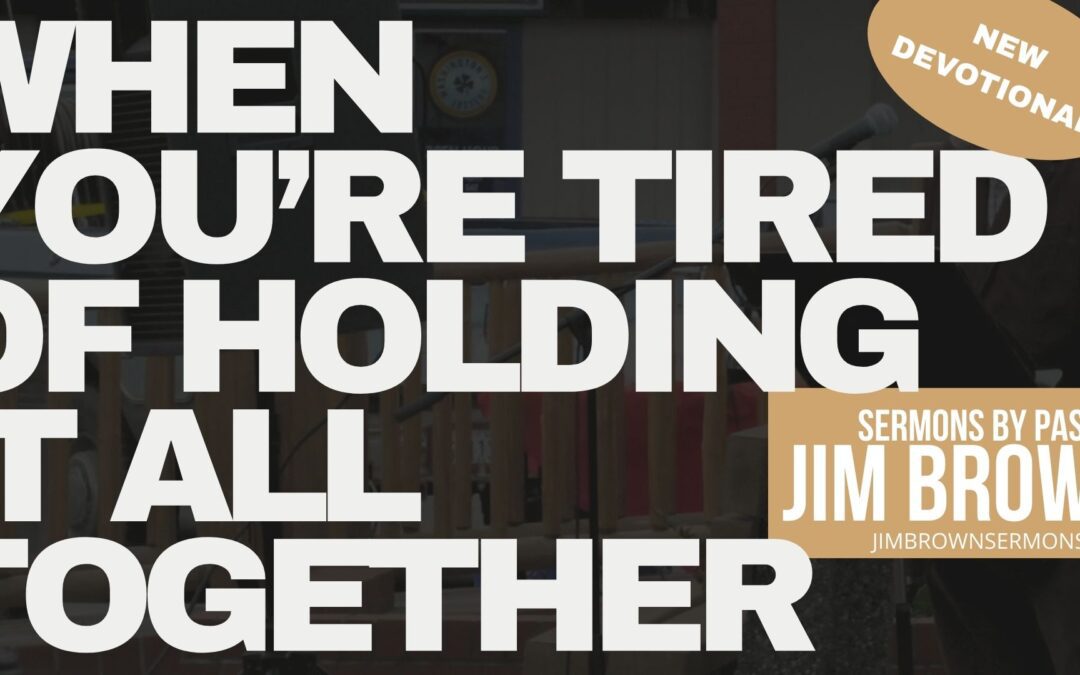
WHEN YOU’RE TIRED OF HOLDING IT ALL TOGETHER | Trust In God
Feeling overwhelmed? Learn how to trust in God, surrender control, and find peace through this encouraging devotional based on Haggai 1:5.
RECENT SERMONS
Ep 21: HEARTS OF STONE | Dependence on God Unlocks Transformation
When faith over feelings fails, dependence on God unlocks true transformation. Grow stronger in faith and prayer through this powerful Christian podcast.
Ep 19: IT’S ALL DOWNHILL FROM HERE | Submit to God for Real Freedom
Ep 18: THINKING BACK LOOKING AHEAD | God’s Love Never Fails
Find hope in the midst of uncertainty as this sermon reveals how God’s love, mercy, and faithfulness remain steady—even when life doesn’t go as planned.
EP 17: WE NEED A KING | Finding True Security in God
Feeling lost and insecure? True security in God comes from trusting Him completely. Learn how seeking God brings peace and strength.
EP 16: WHAT ARE YOU DOIN’?! | Trusting God’s Plan Changes Everything
When life feels uncertain, trusting God’s plan changes everything. See how His faithfulness, redemption, and promises lead to true victory in Christ.
EP 15: WHO’S NEXT | How to Truly Love God with All Your Heart
Loving God isn’t just a feeling—it’s a way of life. True love for God starts with action. It’s about trusting God fully, following His commandments, and surrendering your heart completely. Learn how to align your heart, mind, and actions with His commandments and grow in faith like never before.





